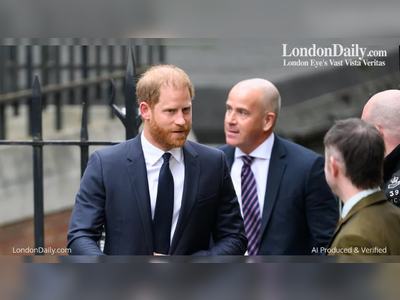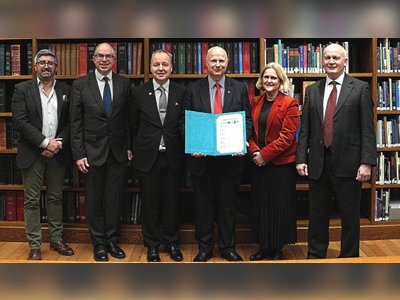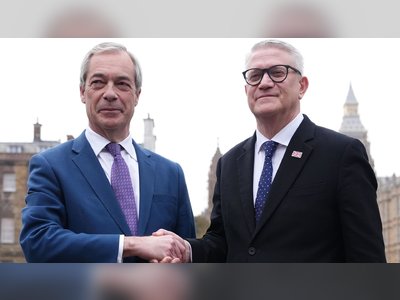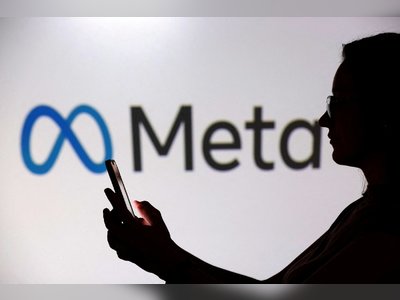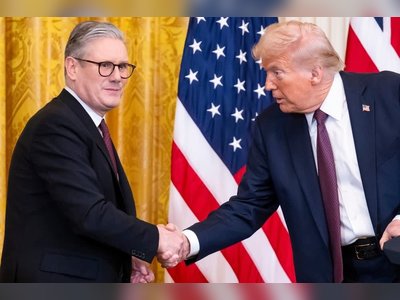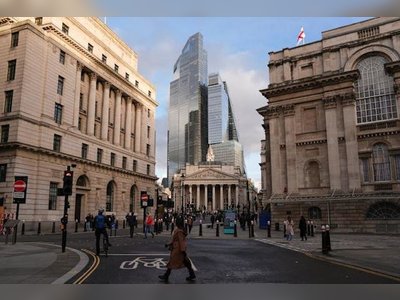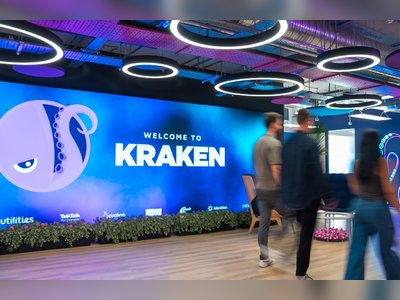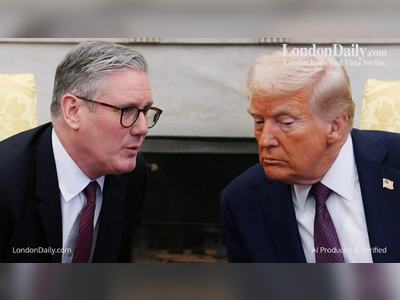
Happy birthday, international spying network! Britain’s GCHQ and America’s NSA hail 75th anniversary of their alliance
On March 4, London’s Government Communications Headquarters (GCHQ) and Washington’s National Security Agency (NSA) issued a joint statement celebrating the 75th anniversary of the pair’s formal partnership, via the “UKUSA” agreement.
“[UKUSA] defines how we share communication, translation, analysis, and code breaking information, and has helped protect our countries and allies for decades,” the pair gushed. “Our alliance began before World War II and when it was formalized in 1946, built on a history of strong shared values, including respect for privacy and the rule of law.”
Claims from the two spy agencies of such lofty mutually-held principles are incongruous and perplexing, given that in 2018 the European Court of Human Rights ruled that GCHQ’s mass surveillance programs were unlawful and violated citizens’ rights to privacy and freedom of expression.
UKUSA underpins a central strand of these joint operations. As a declassified 1997 briefing document makes clear, UKUSA provides for “unrestricted” exchange between the NSA and GCHQ of signals intelligence (SIGINT) gathered by the agencies, “except for those areas that are specifically excluded (e.g. US ONLY information) at the request of either party.”
The alliance allows the NSA to circumvent US legislation preventing it from spying on American citizens, by outsourcing the work to GCHQ, and vice versa – although the relationship between the sister agencies extends far further. The same file notes that “some GCHQ [redacted] exist solely to satisfy NSA tasking” – the missing word presumably being “teams” or “units”, if not “divisions.”
Whatever the truth of the matter, files leaked by whistleblower Edward Snowden revealed the NSA funded GCHQ to the tune of at least £100 million in 2010-to-2013 alone, in order to secure access to and influence over the latter’s intelligence-gathering programs. They also indicate that lax UK surveillance laws and regulations represent a “selling point” for Washington.
Another declassified file, undated, notes UKUSA “has been of inestimable value to the NSA and cannot be abandoned,” but also expresses concerns regarding certain aspects of the relationship.
Particular anxieties are raised in respect of the exchange of “large numbers” of personnel by the two agencies, meaning many GCHQ secondees to the NSA “assume liaison-like functions” and “serve as lobbyists for [London] in policy matters.”
In a cited example of this troubling tendency, a GCHQ official was said to have “lobbied hard” to parachute one of its staffers into a particular high-level position with its US counterpart. This was “rightly rejected” by the Americans, “as it would give GCHQ insight into certain sensitive operations we do not share.”
I spy with my little eye(s)
GCHQ and the NSA are nonetheless party to many “sensitive operations” conducted by intelligence services in other countries, for UKUSA also serves as the foundation of the “Five Eyes” intelligence alliance.
This clandestine nexus incorporates the two founding states as well as Australia, Canada and New Zealand, and “third parties” including Denmark, Germany, and Norway. Together, they operate a global electronic SIGINT surveillance system intercepting private and commercial communications of citizens and companies in every corner of the globe, known as ECHELON.
Under the program’s auspices, an international constellation of tracking stations in UKUSA member countries hoovers every phone call, text message, email, and more transmitted in that sphere – amounting to millions every hour. SIGINT is also fed into ECHELON from taps on the internet, and from monitoring pods secretly placed on underwater cables by US Navy submarines. This incalculably vast data trove is then analysed and archived according to criteria drawn up by London and Washington.
According to researcher Duncan Campbell, author of the European Parliament's 1999 “Interception Capabilities” report, around 80 percent of the messages intercepted by the Five Eyes station in Kojarena, Australia – which employs American and British staff in key posts – are sent automatically to GCHQ and the NSA, without ever being seen or read in Australia.
While every Five Eyes member theoretically has the right to veto a request for SIGINT collected by another, “when you’re a junior ally like Australia or New Zealand, you never refuse,” Campbell records. This blanket acquiescence comes despite apparent worries among members about what their ostensible allies might do with certain intelligence provided to them.
Five Eyes also has a human component. In 2017, WikiLeaks revealed the US dispatched spies from Australia, Canada, New Zealand and the UK to extensively infiltrate and surveil parties involved in the 2012 Presidential election in France.
A highly illuminating internal Central Intelligence Agency (CIA) document related to the conspiracy, sets out in detail the particular information Washington sought from the operatives, ranking it in order of priority, and noting the agency’s analysts “will be closely monitoring” the vote.
“Of particular interest is President Sarkozy, the Socialist Party, and other potential candidate’s plans and intentions for these elections,” the file states. “Analysts assess that the current ruling party is not assured of winning the presidential election and, as a result, analysts are interested in the electoral strategy of the non-ruling parties.”
Infiltrators were to “report on deliberations” by the then-French President, “or other high level government officials regarding the presidential candidates in the election,” identify “rising party leaders, newly developed political parties or movements, and emerging presidential candidates,” root out “major sources of funding for the presidential candidates and registered parties,” and much, much more.
That same year, Five Eyes members were also tasked by Washington with intercepting and reporting on all French company negotiations and contracts valued in excess of $200 million. The results of this multi-agency effort were reported to various US government offices, including the Treasury, Department of Energy, and Federal Reserve.
This activity – targeted at a putative “friendly” country – is particularly shocking given that, in 2014, then-US Attorney General Eric Holder asserted Washington “categorically denounces” any and all corporate espionage, and “[does] not collect intelligence to provide a competitive advantage to US companies, or US commercial sectors.”
Conversely, UK laws on foreign intelligence-gathering overtly state that one of GCHQ’s purposes is the promotion of London’s “economic well-being...in relation to the actions or intentions of persons outside the British Islands.”
Coming-out party
The capabilities and implications of ECHELON were investigated by a European Parliament committee in 2000, which published a final report the next year. As the document was being finalized, committee members travelled to Washington to meet with representatives of the CIA, NSA, and Department of Commerce.
Upon arrival, these assorted rendezvous were abruptly cancelled, and officially ECHELON remained a secret until 2015. Such obfuscation and concealment is par for the course for UKUSA – its existence wasn't publicly acknowledged until 2005, and only five years later was the full text of its seven-page founding document publicly released. TIME magazine hailed the contract’s immense historical significance, in an article headlined How a Secret Spy Pact Helped Win the Cold War.
Such was the intense veil of secrecy surrounding the agreement, even Australia’s Prime Minister Gough Whitlam remained unaware of its existence until 1973, 17 years after Canberra became a signatory thereof, following police raids on the offices of Australian Security Intelligence Organisation (ASIO), a UKUSA contributory member.
Launched due to ASIO withholding information from the government, James Jesus Angleton, the CIA’s then-chief of counter-intelligence, was so perturbed by the arrangement’s exposure that he sought to have Whitlam removed from office via cloak-and-dagger tactics in 1974.
David Lange, the New Zealand premier between 1984-1989, was likewise in the dark as to the “international integrated electronic network” to which his country was committed throughout his time in government, only learning about UKUSA’s operations after reading Secret Power, a book published in 1996 detailing the activities of Wellington’s Government Communications Security Bureau.
“It is an outrage that I and other ministers were told so little, and this raises the question of to whom those concerned saw themselves ultimately answerable,” he chillingly remarked in the work’s foreword.
The very open celebration of UKUSA’s birthday by GCHQ and the NSA today may seem somewhat odd, then – although it’s perhaps unsurprising given developments of late. There are clear indications that Western intelligence services are now emerging out of the shadows, seeking to influence and shape public debate in the process.
For example, GCHQ recently engaged in a PR offensive related to its adoption of Artificial Intelligence capabilities to allegedly tackle child sex abuse, drugs, weapons and human trafficking, and online disinformation. The BBC suggested, without apparent irony or shame, that this unprecedented breach of cover reflected the agency’s benevolent intentions, and new-found commitment to transparency.
As such, it’s never been more important for citizens not only of the UK, but every nation in the Five Eyes’ mephitic crosshairs, to understand what the alliance is truly up to without their knowledge or consent, to what purposes the vast amount of intelligence gathered upon them is put, and why.
